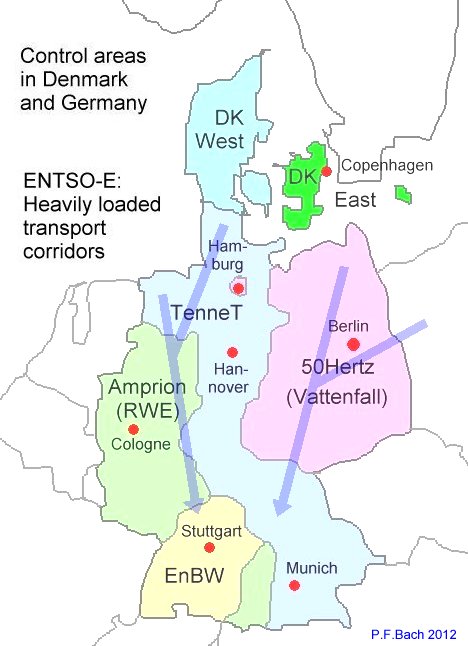| generic-user-1 said:
blackouts? in germany? because of EE? thats new... and the energie prices in europe were allways high, we dont have much gas, we dont have so much coal thats not under citys.
do you have numbers from other countrys to compare? |
http://www.theoildrum.com/node/9205#more
"Feed-in reduction was initiated 197 times during the winter season 2011/12 compared to 39 times the previous year. In 184 cases wind power caused high feed-in from distribution grids into the transmission grids. 5 cases were remarkable (over 1GW) and affected the entire grid."
It was bound to happen with the growth of the wind generation in the energy balance + check transport routes:

Building more PSHs might help with this, but afaik nothing of this is in plans in Germany.
UPD. From the article above:
"The main part of the German wind power is installed in the northern part of the country while the main part of the PV capacity is installed in Bavaria. The nuclear moratorium has created the most serious supply problems in the southern part of Germany. This observation suggests additional PV generation to relieve the supply problems."
By now you could easily write off Germany from the "nuclear club", technologically and resourse-wise rebuilding this will cost a lot.
By numbers you mean kW per hour cost for end-user, households and enterprise?




























